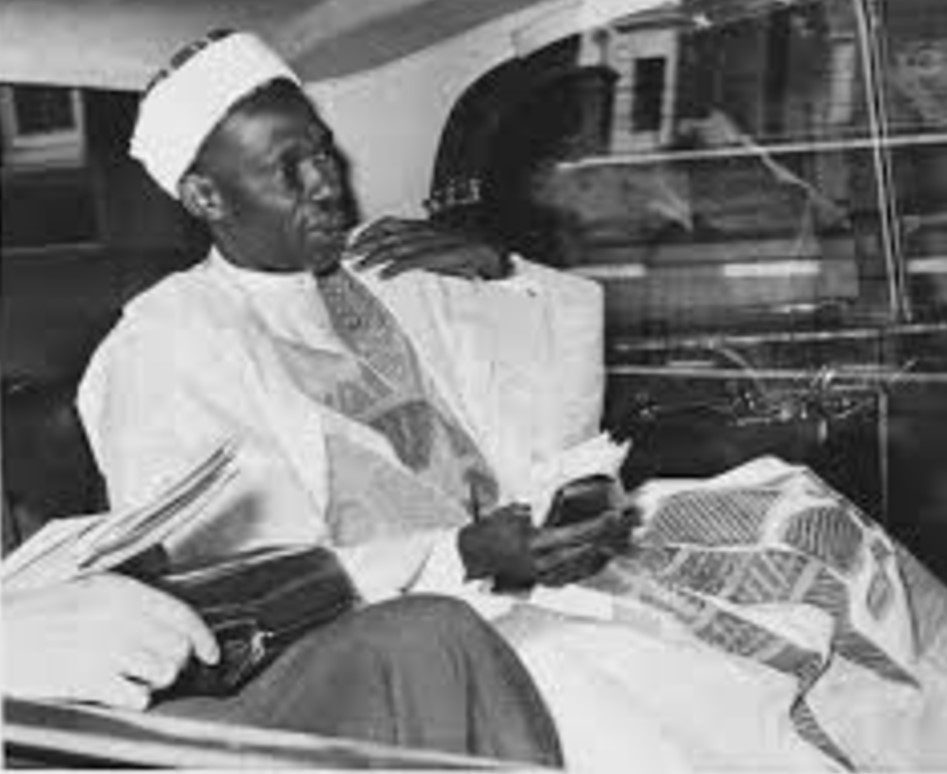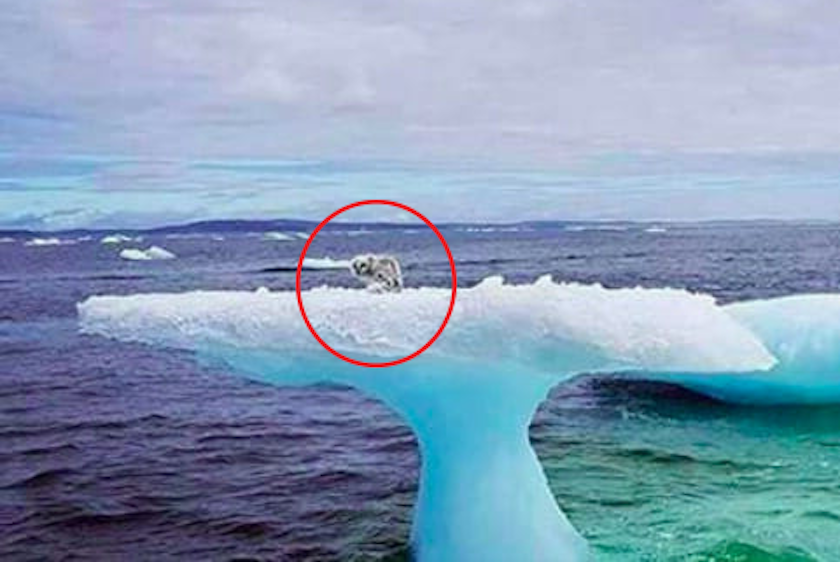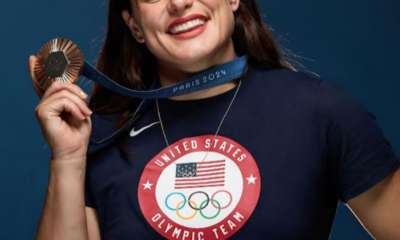Ibrahim Babankowa
Ibrahim Babankowa who as at then was an Assistant Superintendent of Police (ASP) found the bodies of Tafawa Balewa, Okotie Eboh and others. In an interview with Vanguard Newspaper, Babankowa recounted how he tracked and found the bodies…Click Here To Continue Reading>> …Click Here To Continue Reading>>
What was your experience like?
The saddest part of my life as a police officer was the events of January 15th -20th 1966. I was then an Assistant Superintendent of police serving at Mubi in the former Sardauna Province and thereafter, I was discharged from the police mobile force. It was while I was in Sardauna Province in December 1965 that the political crisis in the Western Region blew up.
There was anarchy and ‘Operation Wetie’ where rival political groups were spraying each other with petrol and setting their victims ablaze. Consequent to the ugly development, the Federal Government intervened and raised an anti-riot unit from the Police Refresher Course School in Kaduna, and I was posted from Mubi to Kaduna to take over the unit and given the mandate to quell the trouble in the Western Region.
How did the operations go?
I led the operation in Ibadan, and was later assigned to proceed to Owo with my men because of the brewing tension there. Later, I was asked to move the unit to Arigidi, a border town between the Northern and Western regions. While I was at Arigidi, we got a report that people were being killed at Somolu along Ikorodu Road in Lagos.
So the authorities ordered the unit again to the trouble spots in Lagos where we contained the mayhem. As part of the daily routine, we patrolled Ikorodu, Sagamu, Ibadan, and returned through Abeokuta, Sango-Ota, Agege and Ikeja. At a later stage, we experienced another outbreak of violence in Abeokuta, and were ordered to change base from Somolu to Sango-Ota to deal with the situation there.
What was the situation like at Ota?
I remained at Sango-Ota up to January 15th 1966, the day the first military coup took place in Nigeria. On the night of the coup, I was at a police checkpoint in Sango Ota when a convoy of Army Land Rover, Trucks, and two Peugeot saloon cars were moving from Lagos to Abeokuta and we had no cause to suspect anything sinister because they were military vehicles presumably on a complimentary patrol to restore order.
Little did I know that those military vehicles were indeed conveying the Nigerian leaders to their death. We were perhaps the last group of people that saw them alive. We later discovered the vehicle stopped about three kilometres away from our checkpoint and diverted into a nearby forest where they shot and killed the Prime Minister, Okotie-Eboh, and this was on a Friday night, January 15th 1966.
About an hour later these same military convoys came back and headed towards Lagos. The following morning we learnt that there was a military coup. While the chaotic situation remained, the prime minister, Alhaji Tafawa Balewa was reportedly removed from his residence and taken to an unknown location.
How did you discover where the Prime Minister and the minister were dumped?
I got a clue on the fourth day of his death I had gone to the clinic at Sango Ota to get medication at the only clinic then in the town that equally served as General Hospital, when I picked a loose conversation between some patients at the clinic. They said in Yoruba that there was an unpleasant smell around their neighbourhood, and they didn’t know what was causing it and I later found out that those women came from a village along Abeokuta highway.
What was your reaction to the clue ?
The nature of the operations dramatically changed as I divided my anti-riot unit squad into two. I deployed a unit to comb the area, and that was how we came across the spot in the forest where we beheld a horrible spectacle.
What did you discover?
We saw the decomposing corpses of the Prime Minister, Abubakar Tafawa Balewa, Chief Okotie –Eboh, Colonel Kur Muhammad, Colonel Abogo Largema and two others. I was shocked and reported my findings to the Inspector General immediately through the nearest police station at Ikeja Provisional Headquarters where the officer in charge, Alhaji Kafaru Tinubu, allowed me access to use the facility. I told the IG that I had sighted and identified the dead bodies of the Prime Minister and others and that I was awaiting further instructions.
Incidentally the substantive IG, the late Mr. L O Edet was on leave and the late Alhaji Kam Salem was acting. I was subsequently directed to move to the Force Headquarters and to facilitate my quick arrival he asked me to use siren when coming to Lagos.
By the time I got to Lagos, General Aguiyi Ironsi had already taken over power as the first military Head of state and located himself to the Moloney Street Force Headquarters. Before I was let in, I was disarmed by the military personnel who were there waiting for me. They seized my weapons a gun and a pistol. They also went ahead to remove my boots, belt and cap before I was marched bare footed before the Inspector General who was sitting in company of the new Head of state, General Ironsi. READ FULL STORY HERE>>>CLICK HERE TO CONTINUE READING>>>
As I arrived in the office, Kam Salem did not utter a word, but General Ironsi said to me in Hausa, “officer, Ka ce kaga gawar Prime Minister Abubakar Tafawa Balewa da ta wasu mutane”? meaning “Officer you said you have sighted the corpses of the Prime Minister, Abubakar Tafawa Balewa and others”? and I said “Yes, Sir”. General Ironsi asked again “How did you know him”? and I said “ well I had worked with the Sardauna of Sokoto as his Security officer, and Sardauna and Balewa were very close, and I knew the Prime Minister very well”.
What happened thereafter?
I was marched out, and General Ironsi directed I should be detained at the Naval Base, Apapa, but the IG told him that “if you wouldn’t mind we can put him in detention here in our own custody and produce him at any hour you want him.’‘ General Ironsi accepted the IG plea, and I was hounded into detention at Yaba Police station.
At about mid night the ADC to the late Prime minister, Mr Kaftan, and the then Madaki of Bauchi who was an in-law to Alhaji Tafawa-Balewa came with an ambulance and a truck full of coffins, secured my release and directed I should lead them to the spot where the corpses were.
What happened at the forest?
We saw the mangled body of the prime minister crumbled under a tree, his cap (zanna) was lying by his right side. He wore a pure white guinea brocade gown which had already changed colour. As a result of advanced decomposition, numerous worms were coming out from his body.
We rolled over a white cloth, and had to bring my weight on his knee in order to straighten it to get a perfect position. We attended to the prime minister body first before others, and I marked his coffin with an Arabic inscription to avoid mix up.
We conveyed his remain to the VIP section of the Ikeja airport where there were two waiting aircraft. The Prime Minister’s corpse was placed in the baggage compartment of one of the aircraft which was also conveying members of his immediate family back to Bauchi for burial.
In Bauchi, we took the corpse to his family house. No one could perform the ritual of washing the corpse as stipulated by Islamic injunction because it was already decomposing, water was simply sprayed on it and final prayers offered before he was laid to rest. After the burial, the IG directed that I should proceed on annual leave, which I did.
What would you have done if you knew what was happening?
Definitely if I had known that occupants of the military vehicles were eminent Nigerian leaders been driven to their death, I would certainly have intervened.
How?
We were more in number, about 53 well-armed mobile police officers at the roadblock, and they were few soldiers in the trucks and some senior officers in a Land Rover. We would have simply overwhelmed them. They might kill some of us but we would have killed all of them, while those who might have survived the shoot out would have lived to tell the story. I would have probably been a dead man by now. I would have saved them because I would have launched an attack.
Was there no sign to suggest the identity of the occupants?
I told you there was an emergency, and a curfew in the Western Nigeria, then an army truck believed to be on complimentary patrol. How would you have thought of something sinister? Military coup was strange to us then. But if I had a clue, I would have personally intervened and that would have been a big fight between us and the military.
What do you think is responsible for the current controversy over how Sir Abubakar died?
I would not know their motive, but by experience, there must be a motive by a clique to achieve a hidden agenda. Suddenly a man spoke, another one lent credence to the first speaker, then another repeated it. You ask yourself where did he see the corpse?
Where? How and the state of the bodies because I discovered them and guarded them until they were finally evacuated for burial. The other people who can lay claim to have seen the corpses were those patriotic officers that I went there with and the Madaki of Bauchi, Maitama Sule, Mr Tapgun, the ADC to the late Prime Minister, and a few military doctors who accompanied us with the coffin.
How is the North viewing this controversy?
I am convinced there is more to it than meets the eye. There is an undertone. I want to believe it’s a group thing, and would not be surprised if another person comes to dish out lies to the public again.
Were you surprised by the Mathew Mbu’s statement?
It is unfortunate. Look at a man like Matthew Mbu who at the age of less than 30 years was appointed Nigerian Ambassador to UK by Tafawa Balewa only to come and say what he said. Is Matthew Mbu a medical doctor to certify the cause of death? If the Prime Minister died of asthma as he erroneously reported, would he have been possible for him to give up the ghost in the bush with a cabinet member and some military officers on the eve of the first military coup?. The argument is not logical, and its sheer rubbish for people of high intellect to get involved in a pedestrian argument bereft of sound reasoning. Matthew Mbu doesn’t know anything about the issue he has raised.





















